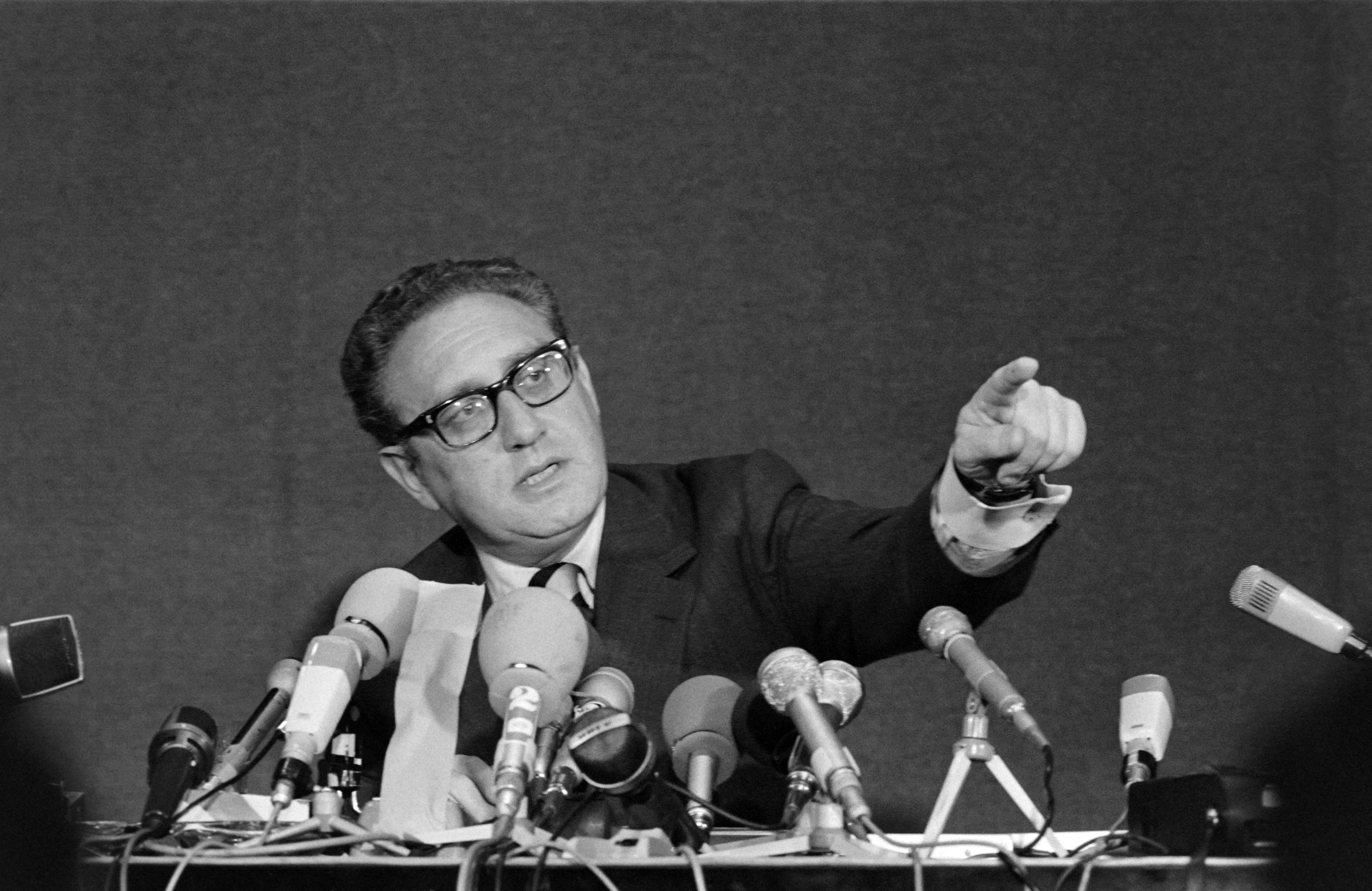Nobel Peace Prize given to Kissinger despite full knowledge Vietnam War was unlikely to end, archives show
Award committee ‘fully aware’ that peace accords led by Kissinger and Tho were ‘unlikely to hold’

Top US diplomat Henry Kissinger and North Vietnam’s Le Duc Tho were awarded the Nobel Peace Prize in 1973 despite the officials involved fully aware that the Vietnam war was unlikely to end any time in the near future.
This has come to light after newly released papers of nominations for the Peace Prize which remained a secret for 50 years. The documents were awarded on 1 January to the chief negotiator who represented Kissinger and Hanoi after a request was placed for them.
Kissinger, who served as the US national security adviser and secretary of state under president Richard Nixon, has been credited with playing a major role in the US military strategy in the final stages of the war in 1955-75 in which Washington recorded 58,220 fatal casualties.
The committee’s decision to award the highest peace award to someone aware of the war likely to prolong has been condemned by experts.
"I am even more surprised than I was at the time that the committee could come to such a bad decision," Stein Toennesson, a professor at the Peace Research Institute Oslo said after reviewing the documents.
There was also the awareness that the award might prove unmerited as the nomination came just two days after Kissinger and Tho signed the Paris accords aimed at bringing the years-long war to an end.
The two leaders were nominated by Norwegian academic and member of the Nobel committee John Sanness on 29 January in 1973, the papers show.
Sanness had said: "My reasoning is that this choice would underline the positive that talks have led to a deal that will bring armed conflict between North Vietnam and the United States to an end.”
The typed letter by Sanness, who died in 1984, added: "I am aware that it is only in the time ahead that it will become clear (what kind of) significance the accords will have in practice."
The nomination letter and the reports prepared on Kissinger and Tho for the committee’s deliberations showed it was "fully aware" the accords were "unlikely to hold", professor Toennesson said.
He added: "The prize was given to Kissinger for having gotten the US out of Vietnam... without any peaceful solution in South Vietnam.”
Tho was nominated alongside the US official because the panel felt it "could not give it to Kissinger alone", Mr Toennesson said.
"He (Kissinger) needed a partner and they then added Le Duc Tho, whom they knew little about. The report on (him) is quite weak," added Toennesson.
Tho had sent a telegram from Hanoi, stating that it was “impossible” for him to accept the Peace Nobel, the original copy of the intimation found in the released documents shows.
"When the Paris agreement on Vietnam is respected, guns are silenced and peace is really restored in South Vietnam, I will consider the acceptance of this prize," the North Vietnamese politburo member had said.
The US military intervention in Vietnam in the early 1960s was termed as a move to contain the spread of Communism in southeast Asia.
Kissinger has asked to return the prize on 1 May in 1975 after the fall of Saigon, saying that the “peace we sought through negotiations has been overturned by force".
The committee refused to take back the award.
The war in Vietnam ended as the Paris accords sealed the US exit from the besieged country widely reviled at home as a hugely costly and divisive quagmire, but did not silence the guns or bring a negotiated peace in Vietnam.
Subscribe to Independent Premium to bookmark this article
Want to bookmark your favourite articles and stories to read or reference later? Start your Independent Premium subscription today.

Join our commenting forum
Join thought-provoking conversations, follow other Independent readers and see their replies